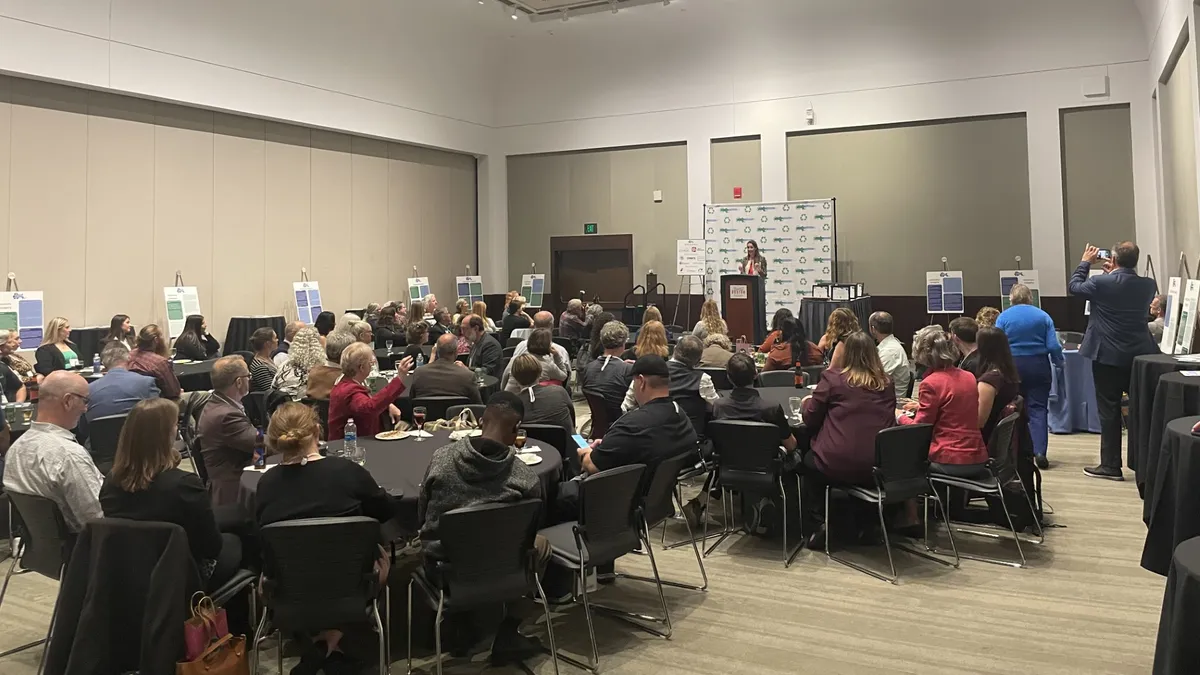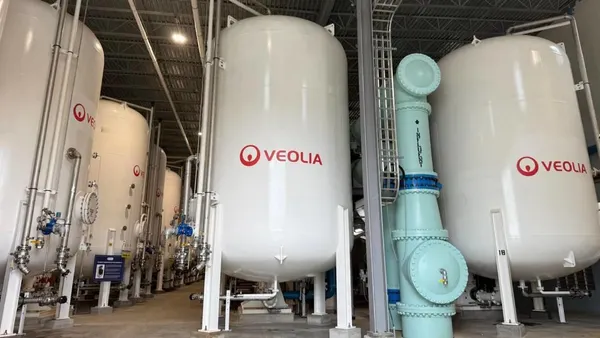Dive Brief:
- The Massachusetts Department of Environmental Protection recently awarded nearly $5.2 million in grants from its Sustainable Materials Recovery Program for 283 municipalities and regional solid waste districts to expand recycling, composting and waste reduction efforts.
- Highlights included more than $1 million in funding for five pay-as-you-throw programs, $250,000 to the South Shore Recycling Cooperative for a regional household hazardous waste facility, $117,600 for three curbside organics collection programs, $110,000 for 11 mattress collection programs and $40,000 for eight drop-off programs to handle mercury-containing items.
- This also included $3.65 million through the agency’s Recycling Dividends Program, which requires funding to be reinvested in recycling efforts. Of the 278 municipalities that received funding, 15 each received more than $50,000.
Dive Insight:
MassDEP has awarded more than $50 million from the program since 2010, but this round marks the largest total amount in recent years. It is seen as a sign of evolving state priorities on multiple fronts.
“Some of the most important environmental protection work happens every day in communities across our state,” said Gov. Maura Healey in a statement. “These grants help further our collective efforts to meet our aggressive goal of 90% waste reduction by 2050, while also boosting local economies by investing in the waste reduction industry.”
The agency’s latest solid waste master plan also calls for a 30% reduction in disposal volumes by 2030, relative to a 2018 baseline. As part of that effort, MassDEP recently added mattresses and textiles to the list of categories that are banned from disposal, while also expanding the number of businesses required to divert organics. Additionally, the agency has increased its focus on areas such as reduction, reuse, plastics and building deconstruction.
The annually-awarded RDP grants are one way the agency can advance its agenda. Award amounts are based on a point system that includes multiple factors about a municipality’s recycling system. This was the second year that MassDEP used environmental justice considerations to determine its funding.
All environmental justice communities, as defined by the state’s Executive Office of Energy and Environmental Affairs, received higher payments for each qualifying RDP point. For example, 21 of the 50 designated EJ communities that applied earned than less 10 points but were awarded the full point value. According to the agency, 18% of the overall awards went to EJ areas, representing almost 32% of total funding. A spokesperson also noted that one RDP point category is focused on diversity, equity and inclusion efforts within municipal recycling programs.
This latest funding announcement follows $950,000 awarded through the state’s Recycling and Reuse Business Development Grant in February, with more financial assistance expected in the future.
Healey — who took office this year — campaigned on a pledge to dedicate 1% of the annual state budget to energy and environmental issues, and that was included in the FY24 budget.
MassDEP’s budget increased by $7 million as a result, according to MassDEP Commissioner Bonnie Heiple. Speaking at a recent event hosted by MassRecycle, a nonprofit, Heiple called this an “unprecedented” move and said waste issues have “the full support of this administration.”
“This new funding will enable us to increase staffing for a number of our key agency priorities, including implementation of the 2030 Solid Waste Master Plan. New staff will help us expand waste ban inspections, implement programs to reduce waste and support reuse and repair and expand recycling market development programs,” said Heiple.
Looking ahead, Heiple said the agency expects to finalize a comprehensive recycling market development action plan later this fall.
Brooke Nash, a former MassDEP official, also received a lifetime achievement award at the MassRecycle event.











